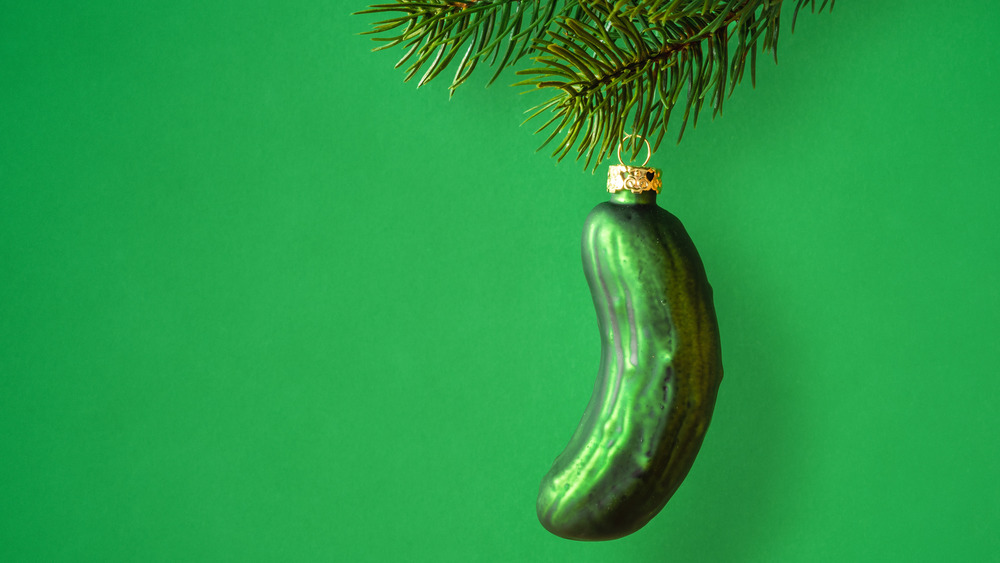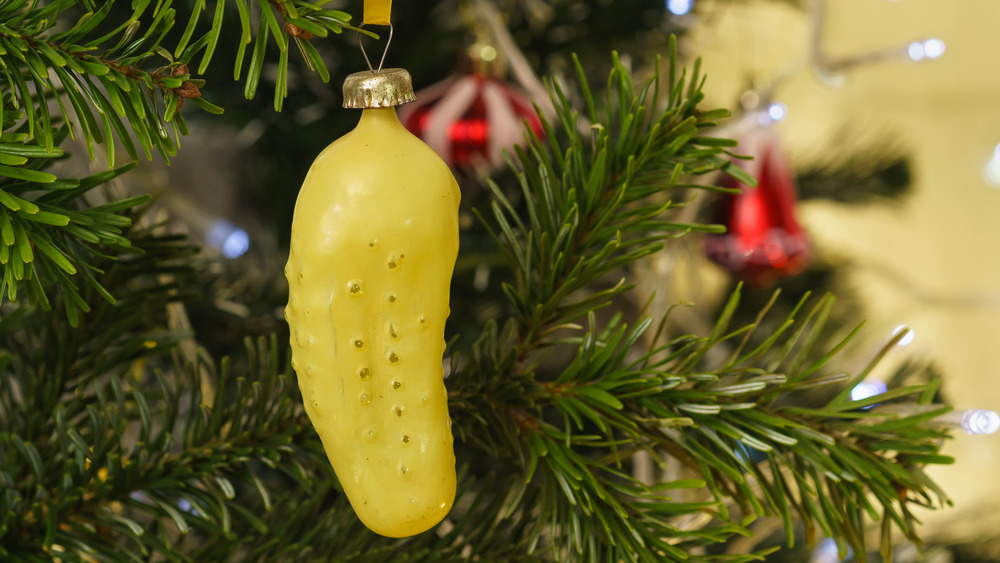The Truth About The Christmas Pickle
For those who haven't been graced with the charming tradition of the Christmas pickle, it goes something like this: There is a quirky gherkin — aluminum, glass, perhaps plastic — planted somewhere, in secret, within the tinsel, lights, and other decorations of the family Christmas tree. Be the first to find it, and you'll receive a special present. Or, you get to be the first to open presents. Or, you'll have good luck all year.
As The Oklahoman points out, the pickle may have once been just some parents' clever scheme to keep kids from rushing the tree on Christmas morning like savages. Admittedly, the tradition isn't so well known as the whole "leave cookies and milk for Santa Claus" thing (very much an American variation), or hanging stockings, or singing carols, or even giving gifts.
Even though Christmas is celebrated all over the world, as this non-exhaustive list on Green Global Travel shows, traditions can vary greatly from country to country. At this point in history, then, it can be hard to sift out the roots of one particular custom or story, which is why pinpointing the origins of the Christmas pickle can present quite a ... um ... pickle. The pickle has been referred to as "German" more often than not, but as ThoughtCo explains, not too many folks in Germany appear to have ever heard of it. There are 1,001 additional legends about the pickle, so let's take a look at some of the more popular variations.
The pickle comes from urban legends or department store marketing
One of the more believable, but tragic, origins of the Christmas pickle comes from the Civil War. In this version, a German-born Union solder is captured and taken prisoner in Georgia. A Confederate soldier eventually felt bad for him and, you guessed it, gave him a pickle. Somehow, the soldier, after being freed, went on to start the pickle-hiding tradition in remembrance of his imprisonment. Another captivity-based origins story comes from Berrien Springs, Michigan, whereby, as Taste of Home says, "Two Spanish boys were kidnapped by an evil innkeeper, who stuffed them into a pickle barrel. St. Nicholas happened by and rescued the lads." Which sounds more like fable than history.
Another commercial reason might make the most sense, though. As Why Christmas explains, the Woolworth department store started importing Christmas tree decorations from Germany in the 1880s, and some of the decorations were apparently fruit and vegetables. Perhaps there were some pickles among them? This story actually corroborates a Christmas pickle (Weihnachtsgurke) fact explained on The German Way. It seems that the first Christmas ornaments, produced in Lauscha around 1847, were fruits and nuts made from glass. Maybe several decades later some of these products made their way to Woolworth? In any case, let's hope those folks didn't have hungry toddlers participate in the whole "hunt the pickle" game.
Regardless: Happy hunting, folks. Let's hope Santa brings this year's winner an extra special gift.

